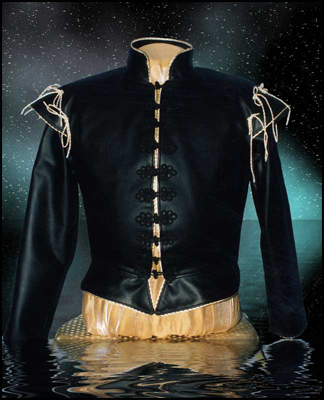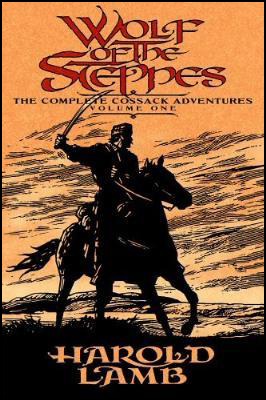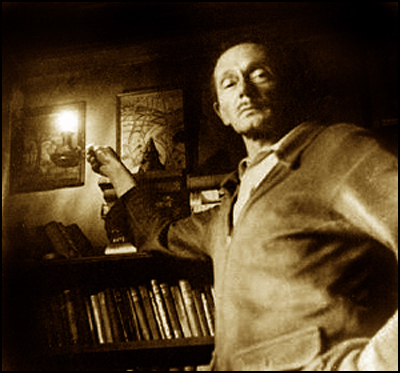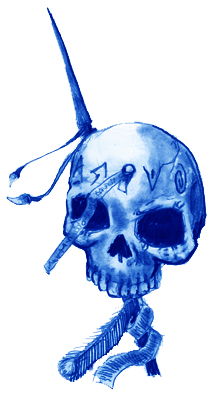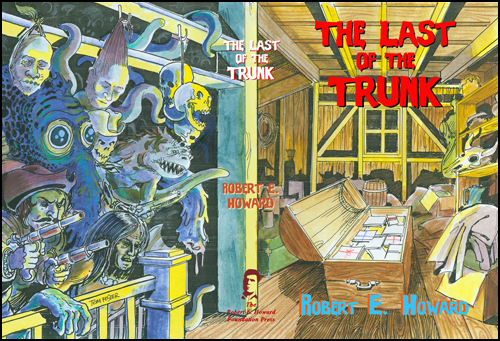
Paul Herman at The Robert E. Howard Foundation recently sent me the following information concerning the much anticipated Foundation release The Last of the Trunk, which collects most of the remaining unpublished detritus of Howard’s career.
PAUL: The Last of the Trunk is now available for pre-order. Well, as soon as the website is updated, that is, today or tomorrow. Book should ship in November.
Robert E. Howard generated an enormous volume of written works, around 3.5 million words. In his tiny room in his house in Cross Plains, REH kept a trunk to hold all his output that was still awaiting a sale, as well as works that were rejected, unfinished, something he especially wanted to save, or simply copies of early drafts that he would reuse the back of in typing up another story. At the time of his death, that trunk held literally tens of thousands of pages of material, all hand-typed by REH.
In the early 1960s, Glenn Lord obtained the contents of REH’s trunk. He had the duty, pleasure, and challenge of sorting it all out, and to begin sheparding those works into print. Hundreds of stories and poems poured forth, to see print in assorted books, magazines, and fan publications.
Ever since the publication of Glenn Lord’s The Last Celt in 1976, collectors of the works of REH have been aware of, but unable to read, more than a hundred unpublished stories and fragments. A few were published in the intervening years, but not many.
Finally, in this volume, The Last of the Trunk is being revealed. Virtually all the remaining unpublished prose will be included. While this certainly is not his most memorable or impressive work (those works are already in print), it does fill in lots of blank spaces for the scholars and collectors, and perhaps yield a little more understanding of one of the greatest pulp writers.
This will be the largest REHF publication to date, at 672 pages. Hardback with dust jacket by Tom Foster. Edited and with an introduction by Patrice Louinet. Design by Dennis McHaney. Many of the works are incomplete or unfinished. Many of the complete stories are either boxing or high school papers.
A detailed list of the contents:
Blue River Blues; The Battling Sailor; The Drawing Card; The Jinx; The Wildcat and the Star; Fistic Psychology; Untitled (“Huh?” I was so dumbfounded . . .); Fighting Nerves; The Atavist; A Man of Peace; The Weeping Willow; The Right Hook; A Tough Nut to Crack; The Trail of the Snake; The Folly of Conceit; The Fighting Fury; Night Encounter; The Ferocious Ape; The Ghost Behind the Gloves; Misto Dempsey; The Brand of Satan; Incongruity; The Slayer; The Man Who Went Back; Untitled Synopsis (Hunwulf, an American . . .); Untitled (Thure Khan gazed out . . .); Untitled (As he approached . . .); A Room in London (outline); The Shadow in the Well (draft); Fate is the Killer; The Grove of Lovers; The Drifter; The Lion Gate; Untitled (Franey was a fool.); The Ivory Camel; Wolves – and a Sword; Untitled (I’m a man of few words . . .); Untitled Synopsis (First Draft: James Norris . . .); The Dominant Male; The Paradox; Untitled (Mike Costigan, writer and self avowed futilist . . .); The Splendid Brute; Circus Charade; The Influence of the Movies; Untitled (William Aloysius McGraw’s father . . .); A Man and a Brother; Man; Pigskin Scholar; The Recalcitrant; Untitled (“Arrange, Madame, arrange!”); Untitled (“Yessah!” said Mrs. . . .); The Question of the East; In His Own Image; The Punch; The Female of the Species; The Last Man; The Treasure of Henry Morgan; Untitled (The lazy quiet of the mid-summer day . . .); Through the Ages; The White Jade Ring; The Roving Boys on a Sandburg; Westward, Ho!; The Wild Man; What the Deuce?; The Land of Forgotten Ages; The Funniest Bout; The Red Stone; A Unique Hat; Untitled (“A man,” said my friend Larry Aloysius O’Leary . . .); Untitled (. . . that is, the artistry is but a symbol . . .); Untitled (I met him first in the Paradise saloon . . .); Untitled (Maybe it don’t seem like anything interesting . . .); Untitled (So there I was.); Untitled (Trail led through dense jungle . . .); Untitled (Two men were standing in the bazaar at Delhi . . .); Untitled (When Yar Ali Khan crept . . .); Untitled (Who I am it matters little . . .); A Twentieth Century Rip Van Winkle; The Ghosts of Jacksonville; A Boy, a Beehive, and a Chinaman; Mr. Dowser Buys a Car; A Faithful Servant; A South Sea Storm; The Ghost of Bald Rock Ranch; A Fishing Trip; Friends; Ten Minutes on a Street Corner; The Wings of the Bat
The price will be $53 for REHF members, $59 for non-members. Shipping costs will be posted at the website.
Any questions, let me know!
